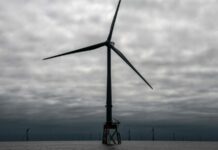
[miningmx.com] — TRANSFORMATION or electricity. That’s how simple the basic dispute is in the quarrel that broke out in Eskom in the past week.
The dispute between Eskom’s former chairman Bobby Godsell and CEO Jacob Maroga arose because Godsell insisted on Eskom focusing on its core business: the generation and transmission of electricity.
Maroga, on the other hand, thought Eskom had a wider mandate and had to follow a transformation agenda. That included Eskom having to support other industries, such as the mines.
“Eskom uses about 50% of the country’s coal production, and that’s why the continued operation of Eskom plays an integral part in ensuring sustainability in the coal industry and other related industries – a sector that provides large numbers of jobs,” Maroga said in the application for 45% price increases, which was submitted to the National Energy Regulator (Nersa) last week.
Eskom’s alternative acquisition strategy, according to the same document, has “a direct influence on the redistribution of wealth and income in the community”. Since the turn of the century, for example, Eskom has spent about R81bn on acquiring black companies.
And, in addition, Eskom’s capital programme in the next two years will be one of the biggest in the country’s history. This enormous spending can have massive additional benefits with the granting of contracts, investments by suppliers, and the buying of goods and services.
Maroga’s mysterious rejection
It’s not that Maroga’s opponents are opposed to these points, but this should not be Eskom’s focus.
The best way that Eskom can help transformation is to make sure that the country has enough power and a steady electricity network, say Godsell and the power supplier’s board.
That’s the difference in principle. It is disclosed in other problems – like questionable management practices – that were brought to light by American consultant Susan Olsen’s report, as well as Maroga’s handling of it.
So far, it has been a mystery why Maroga rejected Olsen when she warned him in this report in July 2007 and during a special interview that Eskom’s coal division was going to collapse – exactly as it did six months later.
Maroga’s only explanation for this is a new “strategy” for Eskom that was leaked to the weekly Mail & Guardian (M&G) last week. Apparently Maroga drew up this document on October 22, presumably in view of the board meeting on October 28 and 29 at which he was asked to hand in his resignation.
According to M&G, Maroga explained his reaction in this document.
According to him, there is a culture of “white supervision” in Eskom. “White supervision is a phenomenon dating from our past of racial segregation and racial hierarchy. The phenomenon is based on the view that without the supervision of whites, blacks aren’t able to lead or achieve anything worthwhile.
“The way in which the Olsen report has gained status and attracted attention is an example of the white supervision mentality.” Maroga said the issues concerning coal mentioned by Olsen in the report had already been identified and attended to.
Good managers choose to go
This is difficult to believe, because the same issues concerning coal and its acquisition were pointed out in the Nersa audit after the collapse of the electricity network in January 2008 as the main reason for those disastrous events that cost the country R50bn.
Maroga is therefore falling back on that old South African excuse – racial prejudice, politics and skin colour – to cover up his share in this disaster. Outside Eskom, he has powerful allies, like the Black Management Forum (BMF) and the noisy ANC Youth League, but inside Eskom things are different.
Not only among the board members, but also in the top management and senior management there is dissatisfaction about him. This has already led to the loss of Eskom’s most talented black officials, such as financial director Bongani Nqwababa, who moved to Anglo Platinum in January, former corporate head Duncan Mbonyana, former project head for 2010 Johnny Dladla, and corporate communications head Fani Zulu, who left at the end of October for the second time.
One can’t help wondering how many other organisations in the public and private sector face the same conflict between service delivery on the one hand and transformation on the other.
It’s also difficult to see Maroga resuming his career at Eskom after last week’s upheaval. How can the staff be expected to have any confidence in him after all this?
But it is very disturbing to see that the matter is not being brought to a head – and that Godsell was interrupted, presumably by Public Enterprises Minister Barbara Hogan, while he was in the process of announcing Maroga’s resignation. It’s also not clear what role President Jacob Zuma and the government played in the dispute.











